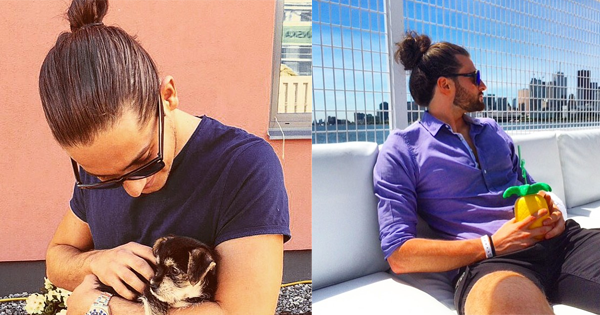In our need to create a masculine name for any female thing that men do, we’ve stumbled upon a phenomenon called “man buns.”
It’s not about their behinds, or about men who bake delicious morning buns. It’s when men wear the “bun” hairstyle that so many women adopt, for the same convenient reason: it gets long hair out of your face and off your shoulders. There's practically a culture for man-bun worship now, with entire popular instagram accounts dedicated to the trend.
But men and women are both facing a similar, totally avoidable side effect of the bun hairstyle, and it's definitely not sexy.
It’s a special kind of balding, and it’s called traction alopecia.
Dermatologist Sabra Sullivan told Mic that the condition is so common that she ses it “probably once or twice a week.”
The condition causes baldness around the forehead and temples, and it happens when people wear hairstyles that pull the hair back severely over long periods of time.
“Traction alopecia in men is becoming more and more common,” says Sullivan.
Traction alopecia is, perhaps unsurprisingly, more often seen in women. Throughout history, women are the ones more likely to have to wear hairstyles that pull their hair back tightly. The research for women goes back over half a century.
But while women see this condition more often, long-haired men have just as much to worry about if they pull their hair back into pontyails, braids, or buns with any frequency. One hair stylist from New York’s Donsuki Salon warned Mic, “Once you damage the hair follicle, it will not grow back.”
Some people, like ballet dancers, require this for their profession. But recreational users of the slicked-back hairstyle may want to loosen up on their scalp more often.





